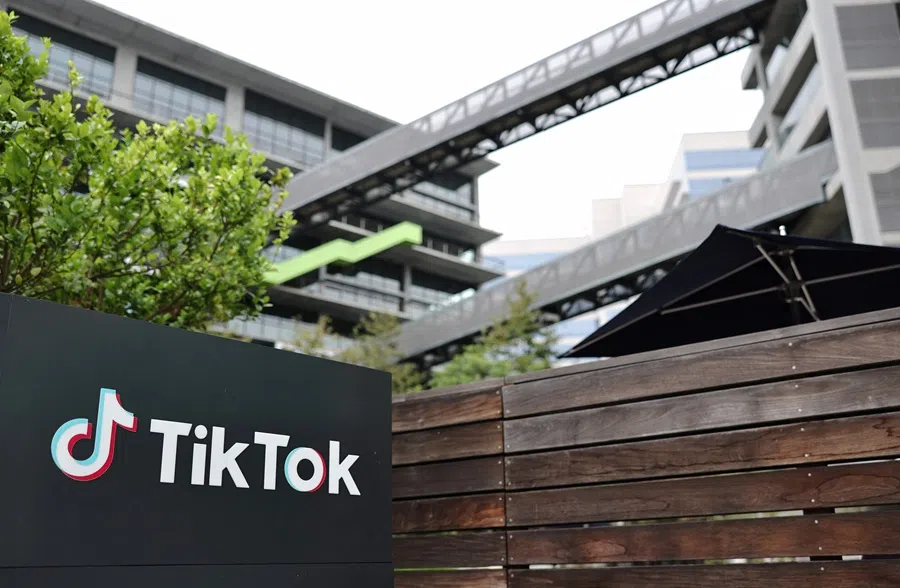Israel’s ‘digital bombs’: Is everyday tech becoming a weapon of war?
Israel’s digital warfare now extends from exploding pagers to cloud servers and AI tools. As global tech giants work with Israeli intelligence, academic Ma Haiyun cautions that the lines between war and civilian life — and between devices and weapons — are vanishing.

When Israeli Prime Minister Benjamin Netanyahu recently boasted that “if you have a cell phone, you are holding a piece of Israel,” many dismissed it as political swagger. Yet his words reveal a disturbing reality: Israel has transformed everyday technology into weapons. From the detonation of pagers in Lebanon, to the manipulation of global platforms like X and TikTok, to the surveillance and control built into smartphones, Israel is pioneering a new era of “digital bombs” designed not only to kill and monitor but also to brainwash — targeting Middle Easterners and Americans alike.
Netanyahu even described this forced transfer of TikTok as “the most important purchase”.
From X to TikTok
Almost simultaneously with the detonation of Israel’s spy-rigged pagers across Lebanon and Syria, a digital war erupted between Israel, Jewish communities, and the social media platform X. When Elon Musk amplified a tweet that blamed Jews for fuelling antisemitism by promoting “hatred against whites”, a growing list of companies — including several Jewish-led firms — pulled their advertising from X.
Politicians, media watchdogs and NGOs quickly condemned Musk, forcing him to apologise and admit that the post “might be literally the worst and dumbest” he had ever written. Soon afterwards, Musk embarked on what many viewed as a journey of Teshuvah — a kind of pilgrimage — to Israel. There, he pledged, “We have to do whatever is necessary to stop the hate,” signalling both contrition and a willingness to cooperate with Israel.
Almost in parallel with the pager detonations and the taming of X, Israel and its allies manoeuvred to place the world’s most powerful social media platform, China’s TikTok, under the influence of Jewish-led or Jewish-linked US companies.
Under the guise of national security, the US pressed for the forced sale of TikTok to American companies — most prominently Oracle — granting them control over TikTok’s user data, algorithms, and compliance/security operations. Netanyahu even described this forced transfer of TikTok as “the most important purchase”. Meanwhile, reports indicate that Israel has been hiring influencers to spread its messaging on platforms such as TikTok and Instagram, with payments of roughly US$7,000 per post.
Unsolicited propaganda through smartphones?
Israel’s “digital bombing” now extends far beyond pagers in Lebanon and Syria. It targets Americans on social media platforms like X and TikTok — and, alarmingly, every smartphone user worldwide through hacking, phishing, data theft and covert insertion. I have experienced this personally: a file entitled “October 7th: Know Thy Enemy” produced by an askari media group appeared in the Files app of my iPhone without my knowledge or consent. I never downloaded or saved it. Its sudden arrival underscores that Israel-linked operations are no longer limited to physical assassinations, but have evolved into daily psychological penetration and propaganda. Devices meant to connect us have become instruments of intellectual espionage and political propaganda.

The propagandist file, “October 7th: Know Thy Enemy”, pointedly employs “thy” instead of “your,” invoking the solemn, biblical cadence of scripture to cast its message as a moral command rather than an objective analysis. While purporting to explain Hamas’s 2023 attack, the file instead weaves a sweeping narrative that ties the group to Iran’s Revolutionary Guards, al-Qaeda, the Taliban, and nearly every militant movement stretching from the Middle East through North Africa to Central Asia. The implication is unmistakable: October 7 is reframed not as a localised Palestinian armed struggle against occupation but as “A Prelude to a Global Terrorist Campaign”, as the file itself concludes.
By fabricating and promoting the thesis of a global terrorist campaign associated with the Palestinians, this propaganda conveniently erases Israel’s own role in Hamas’s rise. For decades, successive Israeli governments — Netanyahu’s foremost among them — nurtured Hamas as a counterweight to Fatah and the Palestine Liberation Organization, entrenching Palestinian political division. Netanyahu himself has openly acknowledged that a strong Hamas advanced Israel’s strategy of preventing a unified Palestinian leadership.
And are we approaching a future where cybersecurity and digital technologies are divided not only by national borders but also by personal ones — where each individual becomes a frontline in a global war of surveillance and manipulation?
New era of hybrid warfare
Israel’s digital bombing extends far beyond physical attacks. The Mossad-linked pager supplier for Hezbollah illustrates how even a small manufacturer can become a vector for covert operations. Scaled up, the risks are even greater: social media platforms from X to TikTok, global tech giants like Apple, Google and Microsoft, along with cloud servers, operating systems and firmware — all remain vulnerable to exploitation, turning everyday technologies into delivery systems for ideological and political explosives.
Recent investigations confirm this trajectory: Israel’s Unit 8200, its elite intelligence arm, reportedly used Microsoft’s Azure cloud platform to store and analyse millions of intercepted phone calls from Palestinians in Gaza and the West Bank. Meanwhile, leaked documents suggest that Google has worked directly with Israel’s Defense Ministry and the Israel Defense Forces, providing AI tools, cloud services and algorithmic support. And these are only a few examples.

Israel’s digital bombing — whether kinetic, as with exploding pagers; informational, through the weaponisation of social media; or cognitive, via propaganda seeded into private phones — heralds a new era of hybrid warfare.
In this domain, everything from a small pager factory to global tech corporations to individual digital products can be transformed into weapons, used either to kill physically or to brainwash digitally. The boundaries between battlefield and civilian life, and between weapons and consumer technologies, are collapsing. Bombing is no longer confined to drones and missiles but is carried out through lines of code, hidden files on social media, and even the devices in our pockets.
This leaves us with an unsettling dilemma. American and Western IT companies, products, and services — X, TikTok, smartphones, cloud platforms and more — are now deeply entangled with Israel through business, security, intelligence and personal links. This raises questions about the perceived safety of these digital products and platforms for users. Consequently, assessing the level of trust customers can place in tech giants whose operations are linked to Israel becomes a key consideration.
Are we approaching a future where cybersecurity and digital technologies are divided not only by national borders but also by personal ones — where each individual becomes a frontline in a global war of surveillance and manipulation? That, perhaps, is the most explosive question of all.





